Middle East
Syrian Druze leader condemns government over sectarian violence | News
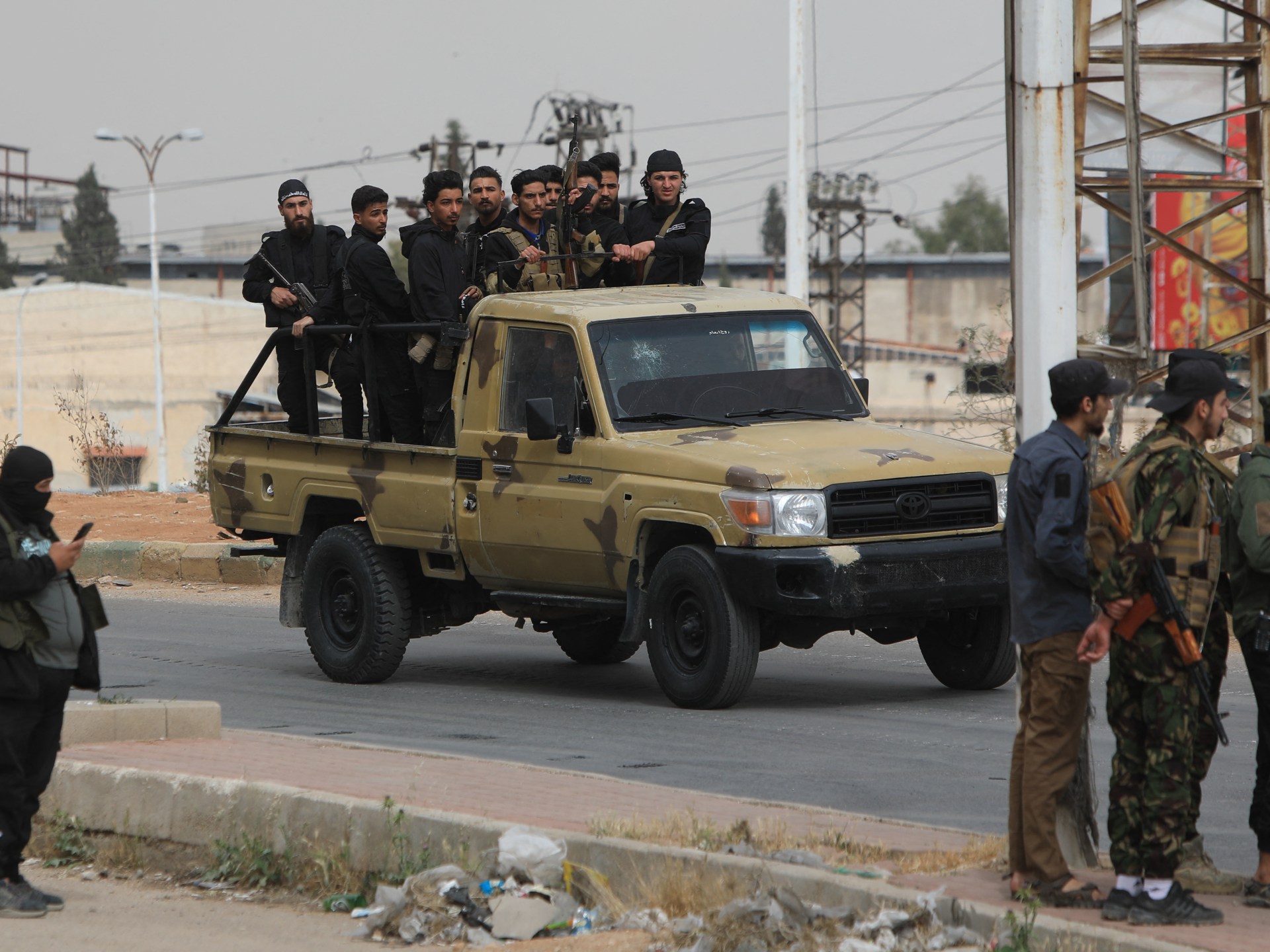
Syrian Druze leader condemns ‘genocidal campaign’ after dozens killed in clashes south of Damascus.
A leader of Syria’s Druze minority has condemned attacks against his community after dozens of people were killed in two days of sectarian clashes south of Damascus.
Sheikh Hikmat al-Hijri on Thursday denounced the violence in Jaramana and Sahnaya near Damascus earlier this week as a “genocidal campaign” against the Druze community in Syria.
Syria’s Ministry of Information said 11 members of the country’s security forces were killed in two separate attacks.
The United Kingdom-based Syrian Observatory for Human Rights (SOHR), a war monitor, said at least 101 people were killed in fighting between security forces, allied fighters and local Druze groups.
The SOHR, which relies on a network of sources in Syria, said the death toll included 30 government loyalists, 21 Druze fighters and 10 civilians, including Sahnaya’s former mayor, Husam Warwar.
In the southern province of Sweida, heartland of the Druze minority, it said 40 Druze fighters were killed, 35 in an “ambush” on the Sweida-Damascus road on Wednesday.
The clashes broke out around midnight Monday after an audio clip circulated on social media of a man criticising Islam’s Prophet Muhammad. The audio was attributed to a Druze scholar. But the scholar, Marwan Kiwan, said in a video posted on social media that he was not responsible for the audio, which angered many Sunni Muslims.
On Wednesday afternoon, the Syrian government said a deal was reached between Druze dignitaries and official representatives after which security forces and pro-government fighters entered Sahnaya and Druze gunmen withdrew from the streets.
Videos on social media showed what appeared to be pro-government armed groups beating Druze men they had captured in Sahnaya and making offensive sectarian remarks.
“This collective killing is systematic, clear, visible, and documented,” read al-Hijri’s statement. “We no longer trust a group that calls itself a government, because the government doesn’t kill its own people through extremist gangs that are loyal to it, and after the massacre claims they are loose forces.”
The violence poses a serious challenge to the country’s new authorities, who toppled longtime ruler Bashar al-Assad in December. It comes after a wave of massacres in March in Syria’s Alawite heartland on the Mediterranean coast in which security forces and allied groups killed more than 1,700 civilians, mostly Alawite, according to the SOHR.
Syrian authorities reject foreign intervention
Israeli officials have expressed support for the Druze, with Defence Minister Israel Katz warning his country would respond “with significant force” if Syria’s new authorities fail to protect the minority community.
In a later statement, Katz said, “Should the attacks on the Druze resume and the Syrian regime fail to prevent them, Israel will respond with significant force.”
Foreign Minister Asaad al-Shaibani on Thursday reiterated Syria’s rejection of demands for international intervention, posting on X that “national unity is the solid foundation for any process of stability or revival”.
“Any call for external intervention, under any pretext or slogan, only leads to further deterioration and division,” he added.
Most Druze spiritual leaders and factions have opted to air their grievances in closed communication with the new government, but concerns have heightened after a crackdown on al-Assad loyalists in Syria’s coastal province turned into a series of targeted revenge attacks against the Alawite minority group.
Videos widely circulated of houses burned down and bloodied bodies of Alawite on the streets. Tens of thousands of Alawite fled south to neighbouring Lebanon, and many are too scared to return.
The Druze have since become reluctant to lay down their arms, which they say they need for protection.
Middle East
ICJ hearing on Israel’s obligation to allow aid to Palestine: Key takeaways | Israel-Palestine conflict News
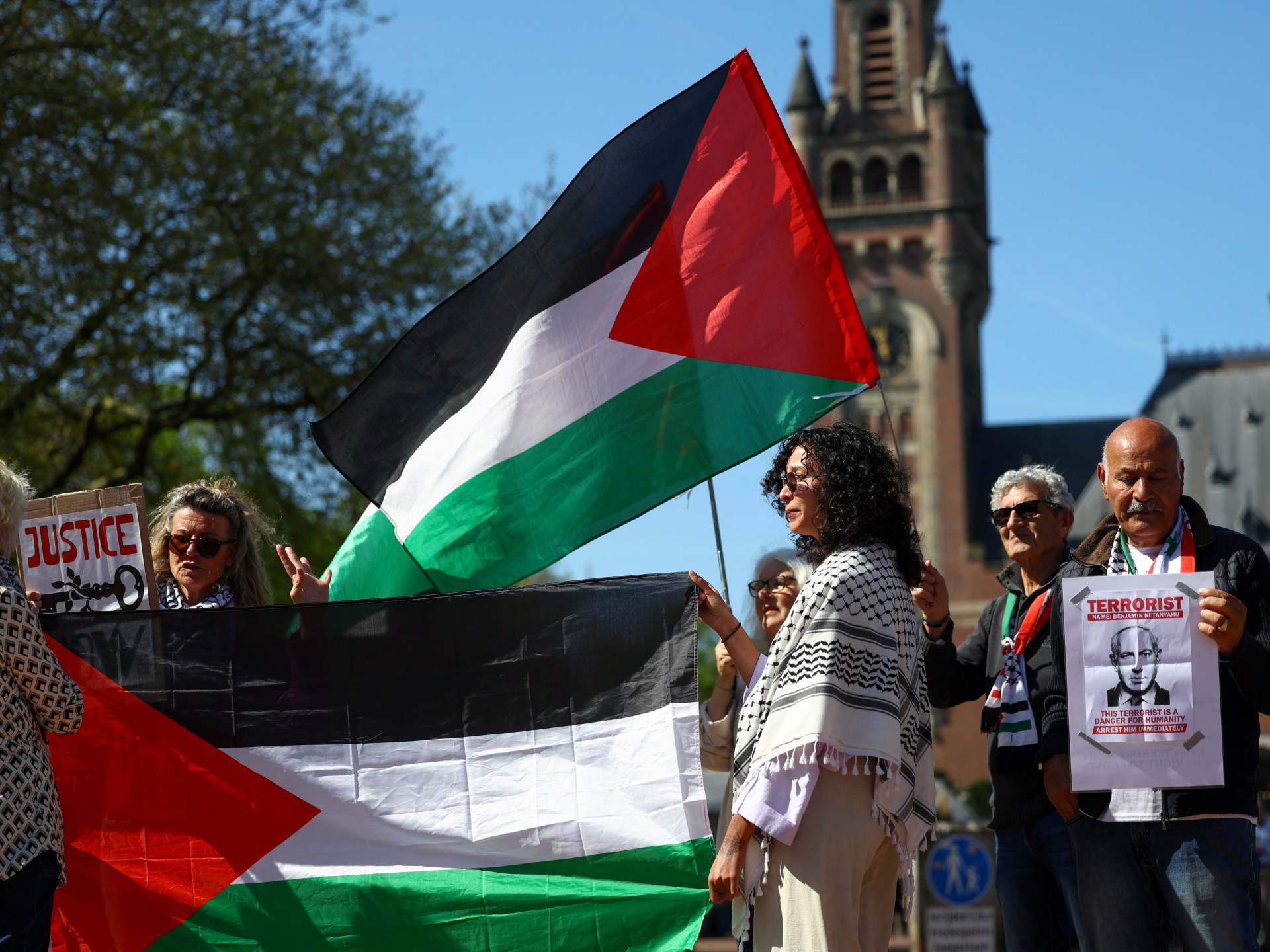
On May 2, the International Court of Justice (ICJ) concluded public hearings into what Israel’s obligations are regarding allowing United Nations agencies and other relief groups to work in the Palestinian territory it occupies.
A panel of judges has heard oral arguments from 40 countries since Monday, including China, France, Indonesia, Pakistan, Russia and the United Kingdom.
The court will likely deliberate for months before making a ruling, requested of it in December by the UN General Assembly.
Many of the participating states rebuked Israel for acutely restricting humanitarian aid into Gaza since launching a genocidal war on the enclave on October 7, 2023.
Israel has cut off all aid – food or medicine – entirely for the last two months, accelerating the starvation and medical crises.
Here are the key takeaways from the hearings:
Starvation threatens the Palestinians as a people
There was broad consensus that Israel, as an occupying power, would be obliged to allow aid organisations to deliver assistance to the people it occupies, particularly in Gaza, which Israel is also bombing.
Israel has weakened human rights norms through its violations in Gaza, Juliette McIntyre, a legal scholar at the University of South Australia, argued.
She pointed out that nearly all the states speaking at the hearings affirmed that the ability of Palestinians to receive humanitarian relief is necessary for their survival, to guard their right to eventual self-determination and safeguard the entire UN system and the treaties underpinning it.
Put bluntly, she said most states agree that Israel should not be allowed to starve civilians it occupies nor impede the relief work of UN agencies.
“Every state, except for two, agrees that Israel is an occupier and it owes certain obligations,” she told Al Jazeera.

What did Israel say?
Israel submitted written statements which called the hearings a “circus” and accused the court of anti-Semitism.
On top of that, it claimed that it has no obligation to work with what it described as compromised UN organs or aid groups and that its sovereign right to “defend itself” takes priority over its responsibility to deliver aid to the people it occupies.
This is not the first time Israel has refused to attend ICJ sessions leading to an advisory opinion.
The US statement
The US defended Israel, said Heidi Matthews, assistant professor of law at York University, Canada.
She added that the US tried to deny the severity of the situation and shield Israel from accountability by deliberately not speaking about the facts on the ground.
According to Matthews, while the US mainly said the ICJ should advise Israel to uphold its legal obligations under international law, it did not provide details of Israel’s conduct or call for Israel to take concrete steps to mitigate the humanitarian crisis it created.
“This kind of highly formalist and factually empty approach to law is characteristic of one form of fascist engagement with legal argument,” Matthews told Al Jazeera.
The US also tried to “spook” the court by bringing up Israel’s unsupported allegations that the UN relief agency for Palestinians (UNRWA) had been infiltrated by Hamas, said Adel Haque, a legal scholar at Rutgers University.
In October 2024, Israel banned UNRWA, which aids the Palestinians made refugees by the Zionist ethnic cleansing that made way for the declaration of Israel as a state in 1948.
The US is betting that the court can be swayed, Haque said, and so it is trying to encourage a more “general” advisory opinion.
“Basically, if the advisory opinion is made at such a high level of generality, then it wouldn’t say anything about Israel’s conduct at all,” he told Al Jazeera.
More than two million Palestinians in Gaza are starving as they face genocidal levels of violence at Israel’s hands.
ICJ cases as a substitute for action?
While ICJ advisory opinions reaffirm international laws and norms, its non-binding opinions cannot change facts on the ground, and some countries may be seeking ICJ opinions rather than take concrete, coordinated action against Israel, said Haque.
“Many [European states] have come before the ICJ in these hearings to say Israel is not fulfilling its obligations. But the question, now, is what are these states going to do about it?” he told Al Jazeera.

He noted the UK had used the recent hearings to denounce Israel’s obstruction of aid and to speak about its decision to halt arms sales to Israel, not enough of an action, he added.
France also spoke about the need for Israel to quickly facilitate aid into Gaza.
But the statements appear to be attempts to substitute for Europe’s collective failure to take urgent action against Israel for its conduct in Gaza, said Haque.
“The onus is on states to decide what they are going to do about [Israel’s actions] and not to wait for the court to rule on what they already know,” Haque added.
When and how will the ICJ rule?
The ICJ is not expected to issue an advisory opinion for months.
The non-binding advisory opinion will likely not compel Israel or member states to change course, according to legal scholars.
Israel has ignored an earlier binding provisional measures by the ICJ ordering it to scale up humanitarian aid and end acts of genocide in Gaza as a result of a genocide case brought against Israel by South Africa in December 2023.
No state has taken any action against Israel for failing to implement the provisional measures.
McIntyre believes the court will eventually issue a narrow ruling that outlines Israel’s responsibilities to facilitate aid and cooperate with UNRWA.
By the time the court issues its opinion, tens of thousands of Palestinians may have already starved to death, or been ethnically cleansed by Israel.
“The advisory opinion won’t solve the problem on the ground and genuine action [by states] needs to be taken,” warned McIntyre.
Middle East
Lebanon warns Hamas against attacks threatening nation’s security | Israel attacks Lebanon News
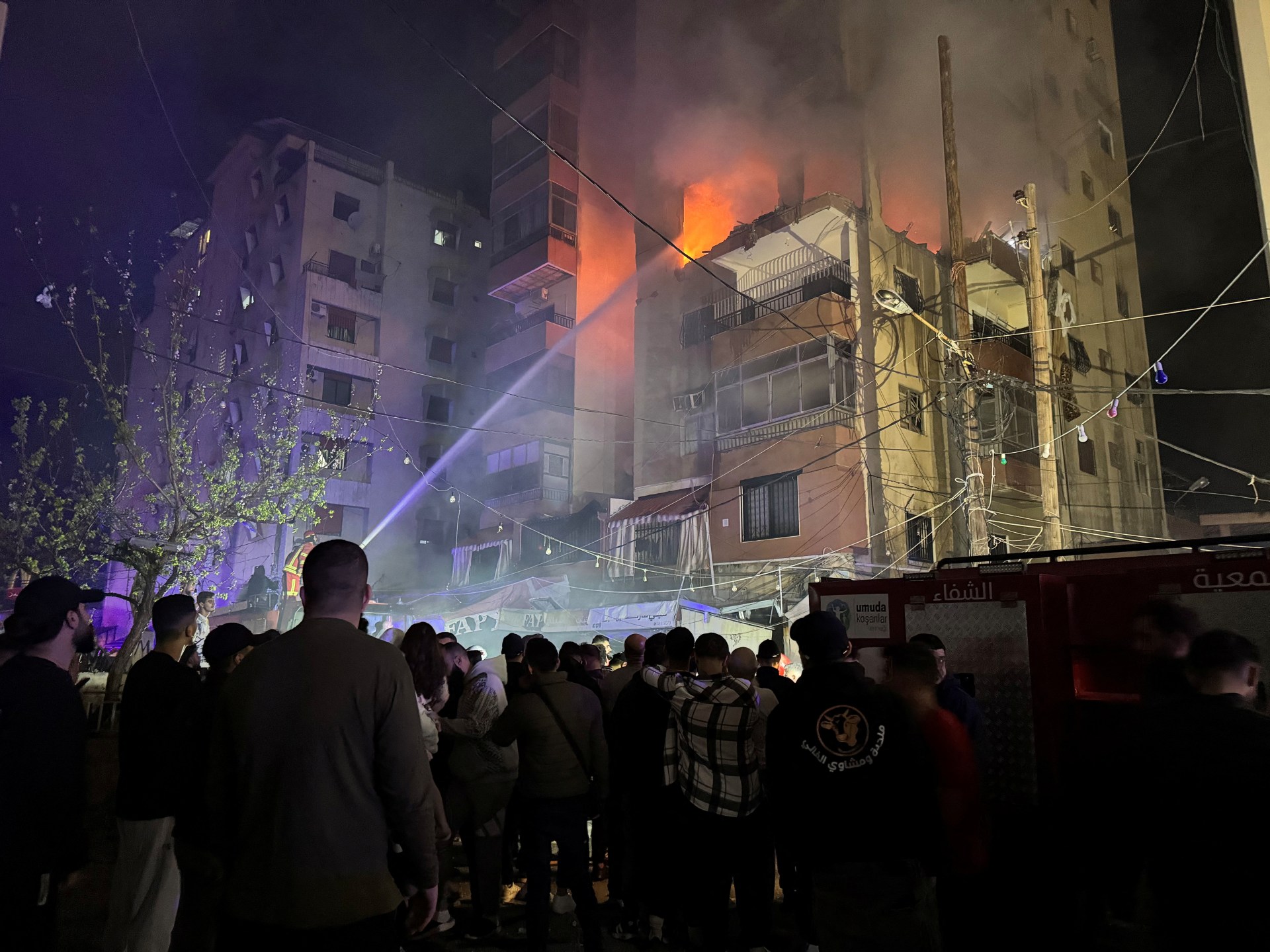
President Joseph Aoun says Lebanon must not be used as a launchpad for instability or be dragged into unnecessary wars.
Lebanon’s top security body has warned the Palestinian group Hamas against using the country’s territory for acts that could undermine national security, after rocket fire towards Israel led to counterstrikes.
The Higher Defence Council issued the warning on Friday as Lebanon faces growing United States pressure to disarm groups outside state control, following a 14-month war between Israel and the armed Lebanese group Hezbollah, an ally of Hamas.
Lebanese authorities are also trying to establish their authority throughout the country, particularly in the south near the border with Israel.
Israel has violated the US-brokered November 2024 truce agreement on a near-daily basis, according to Lebanese authorities, including three air attacks on the capital Beirut.
In a statement, the council headed by President Joseph Aoun said Lebanon must not be used as a launchpad for instability or be dragged into unnecessary wars.
It added that “the utmost measures and necessary procedures will be taken to put a definitive end to any act that violates Lebanese sovereignty.”
Aoun, who previously served as army commander, has pledged to bring all weapons in the country under the state’s authority, but has admitted that disarming Hezbollah, which the US has been pressuring Lebanon to do, is a “delicate” matter.
Mohammad al-Mustafa, secretary-general of the council, told reporters on Friday that while Aoun highlighted the importance of Palestinian rights, he also stressed that Lebanese stability should not be compromised.
Hamas has a longstanding presence within Lebanon, including in camps across the country that host hundreds of thousands of longtime Palestinian refugees, and where Lebanese security forces have long had only limited authority.
Along with Hezbollah, Hamas fighters in Lebanon fired rockets across the southern border into Israel in solidarity with Palestinians after Hamas’s October 7, 2023 attack, when Israel began a huge bombardment campaign in Gaza.
Since then, Israeli air attacks have killed several Hamas commanders in Lebanon, including the group’s deputy chief in early 2024.
Israel has cited security concerns for its continued deadly raids on Lebanon, despite the ceasefire.
In a bid to address the concerns of Israel and the US, which brokered the ceasefire, the Lebanese army arrested Lebanese and Palestinian individuals accused of firing rockets towards Israel on March 22 and March 28.
No group claimed responsibility for the attacks, and Hezbollah has denied any involvement.
But a Lebanese security source told the AFP news agency that security forces arrested three Hamas members.
The council said legal proceedings would begin early next week against those detained over the rocket fire in March.
Middle East
Sudanese paramilitary RSF kills 19 after taking city of al-Nahud: Sources | Sudan war News

Control over city gives the RSF strategic advantage in its bid to take Darfur capital el-Fasher, located 400km to the west.
Fighting in the Sudanese city of al-Nahud, a strategic city in West Kordofan state acting as a gateway to the Darfur region, has killed 19 people and left 37 wounded, according to sources who spoke to Al Jazeera, in the latest eruption of violence in the brutal two-year civil war.
Local sources told Al Jazeera that the paramilitary Rapid Support Forces (RSF), which declared on Telegram that it had “liberated” al-Nahud from the Sudanese Armed Forces (SAF) on Thursday, had rampaged through neighbourhoods, looting the market, houses and cars.
Al Jazeera understands that a doctor, a journalist and a police officer were among those killed as paramilitaries overcame the city, held by the SAF since the start of the conflict that has left tens of thousands dead and uprooted more than 12 million.
Control over al-Nahud has become a priority for both the RSF and SAF as fighting between the pair intensifies in Darfur, where 542 people have been killed in the past three weeks alone, according to the United Nations on Thursday.
The RSF has been doubling down on Darfur in recent weeks after losing the national capital, Khartoum, last month, in a bid to seize regional capital el-Fasher, the last major population centre still in the army’s hands, located 400 kilometres (250 miles) west of al-Nahud.
Recent violence in el-Fasher and the nearby refugee camps of Zamzam and Abu Shouk has caused hundreds of thousands of people to flee 60km (37 miles) across the desert to the town of Tawila.
As it continues its campaign in Darfur, the paramilitary group has also been inching closer to Khartoum again, shelling the presidential palace in its second attack on the capital in less than a week.
On Saturday, the RSF bombarded the army’s General Command headquarters in Khartoum.
Volker Turk, the UN high commissioner for human rights, commenting on the death toll in Darfur and extrajudicial executions conducted by both sides in Khartoum state, said on Thursday that the “horror unfolding in Sudan knows no bounds”.
The conflict between SAF, led by Abdel Fattah al-Burhan, and the RSF’s Mohamed Hamdan “Hemedti” Dagalo has divided Sudan in two, with the army holding sway in the north and east, while the RSF controls most of Darfur and parts of the south.
-
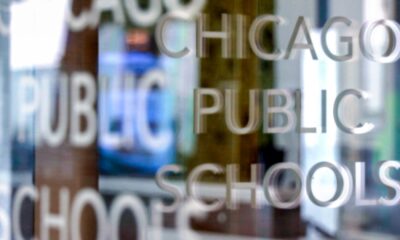
 Education2 days ago
Education2 days agoEducation Department opens investigation into Chicago Public Schools
-
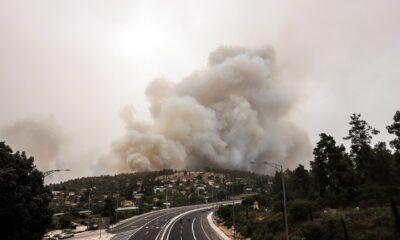
 Middle East2 days ago
Middle East2 days agoIsrael wildfires flare near Jerusalem for a second day | Wildlife News
-
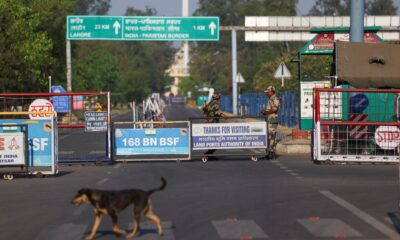
 Conflict Zones1 day ago
Conflict Zones1 day agoThe $10bn India-Pakistan trade secret hidden by official data | Trade War News
-

 Sports1 day ago
Sports1 day agoLondon Marathon: Why more people than ever before are running marathons
-

 Lifestyle1 day ago
Lifestyle1 day agoDiego Boneta on debut novel ‘The Undoing of Alejandro Velasco’
-
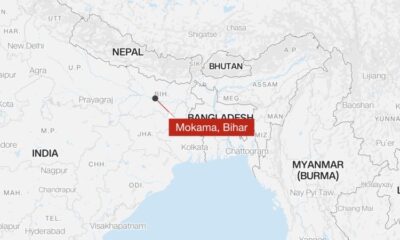
 Asia1 day ago
Asia1 day agoIndian officials investigate reports that students were served food with dead snake
-

 Middle East1 day ago
Middle East1 day agoWhat is behind the violence in Syria? | Syria’s War News
-
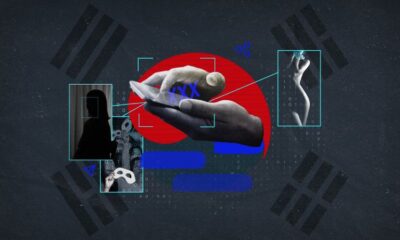
 Asia1 day ago
Asia1 day agoDeepfake porn is destroying real lives in South Korea




